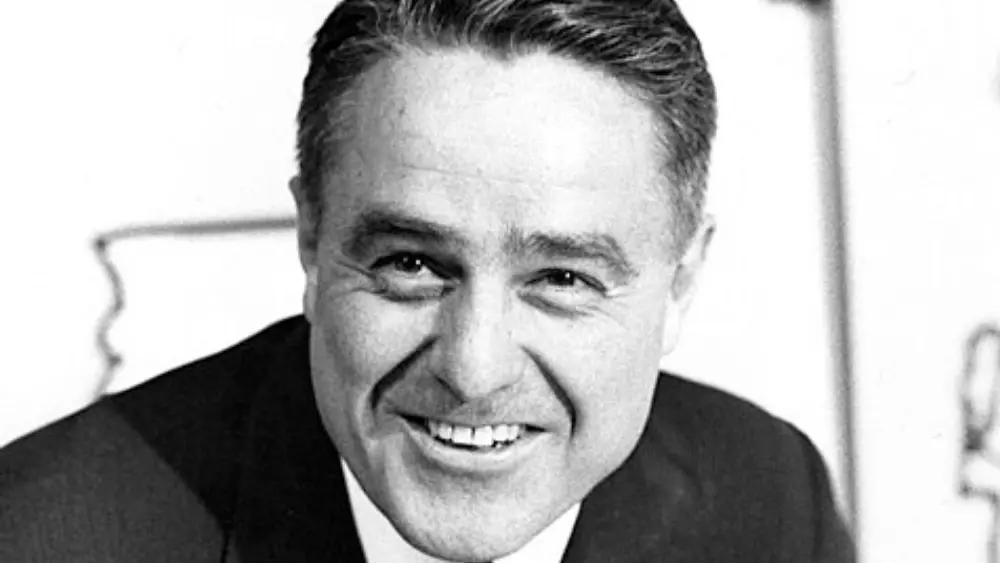Sargent Shriver, a dedicated public servant and architect of the War on Poverty, shaped social policy, combating poverty and inequality. Born November 9, 1915, in Maryland, Shriver committed to addressing disparities through innovative governmental programs, shaping his life and career.
Early Life and Education
Born to a service-oriented family, Shriver’s upbringing shaped his lifelong commitment to humanitarian causes and social responsibility. Nurtured in a service-oriented household, Shriver imbibed the significance of societal contribution from an early stage of life. Influenced by his family’s altruism, he pursued a path addressing social and economic challenges, advocating for vulnerable community members.
Early life shaped Shriver’s duty and empathy, laying the foundation for his future contributions to public policy and social advocacy. Formative years deepened his understanding of social inequalities and community-based initiatives, defining his approach to addressing pressing community issues.
Sargent Shriver: Leadership in the Peace Corps
Shriver’s visionary Peace Corps leadership solidified its principles, promoting global peace and friendship during its foundational stage. Under his guidance, the Peace Corps exemplified American altruism, embodying global cooperation and cultural exchange, symbolizing goodwill worldwide. Shriver’s grassroots approach laid the Peace Corps’ foundation, fostering cross-cultural connections and enabling impactful social and economic progress globally.
Shriver’s leadership fostered volunteerism, transforming the Peace Corps into a platform for community betterment and showcasing humanitarian impact. His tireless advocacy for service and cooperation established a legacy of international goodwill, emphasizing collaborative efforts in addressing global challenges.
Architect of the War on Poverty
Sargent Shriver’s instrumental role as the director of the Office of Economic Opportunity during President Lyndon B. Johnson’s administration established him as a central figure in the design and execution of the ambitious War on Poverty initiative. His visionary leadership paved the way for anti-poverty programs, aiming to uplift disadvantaged communities by addressing systemic inequalities. Shriver’s strategy tackled poverty through education, employment, and community development, empowering marginalized individuals and fostering sustainable socioeconomic progress.
His commitment to eradicating poverty led to influential programs like Head Start and Legal Services, providing educational and legal aid. Shriver’s contributions to the War on Poverty emphasized equitable policies, leaving a compassionate and proactive legacy in combating societal vulnerability.
Sargent Shriver: Great Society Initiatives
Sargent Shriver’s instrumental role in shaping the Great Society initiatives under President Lyndon B. Johnson’s administration highlighted his unwavering dedication to advancing comprehensive policies that fostered social and economic equity. Shriver, a key architect, prioritized impactful programs like Head Start. This provided early education for underprivileged children and facilitated academic success. His Legal Services for the Poor highlighted his commitment to justice, emphasizing equal protection under the law for all Americans.
Shriver’s Great Society leadership highlighted his enduring commitment to uplifting communities and individuals facing systemic disadvantages. Championing education and legal aid, he left an indelible mark on the nation, solidifying his legacy as a compassionate advocate.
Impact on Social Policy
Shriver prioritized community-driven solutions and government-local organization collaboration, shaping his impactful influence on social policy. His approach empowered communities, fostering ownership and agency in the fight against poverty and social inequalities, emphasizing active roles. Emphasizing community engagement, Shriver’s policy approach facilitated sustainable, bottom-up solutions responsive to diverse community needs and challenges nationwide.
Shriver’s advocacy for government-local partnerships facilitated effective, holistic approaches to addressing social issues, fostering collaborative solutions. His recognition of the importance of cooperation and collaboration between different stakeholders fostered a more inclusive and integrated approach to social policy. This emphasizes the critical role of collective action in promoting long-term social and economic progress. Through his commitment to community involvement and collaborative governance, Shriver’s impact on social policy continues to serve as a guiding principle for addressing complex societal challenges and fostering inclusive development that benefits all members of society.
Sargent Shriver: Legacy of Public Service
Sargent Shriver’s enduring legacy as a trailblazer in the realm of public service is marked by his unwavering commitment to advancing social justice and equality for all. His tireless advocacy for the most vulnerable members of society served as a catalyst for transformative change, highlighting the importance of prioritizing the needs of marginalized communities and implementing policies that promote inclusivity and opportunity. Shriver’s legacy continues to resonate with current and future generations of public servants and policymakers, serving as a powerful reminder of the transformative impact of dedicated and compassionate leadership in fostering a more equitable and just society.
Furthermore, Shriver’s legacy of public service underscores the significance of proactive engagement and collaborative efforts in addressing complex societal challenges. His emphasis on the power of community-driven initiatives and partnerships between the government and local organizations has left an indelible mark on the field of public service, inspiring a new wave of leaders to adopt a more inclusive and participatory approach to governance and policy implementation. Shriver’s legacy serves as a guiding beacon for those dedicated to the principles of social equity and humanitarianism, emphasizing the enduring impact of service-oriented leadership in shaping a more just and compassionate world.
Continued Advocacy and Philanthropy
Sargent Shriver’s continued commitment to advocacy and philanthropy following his tenure in government underscored his enduring dedication to fostering positive social change and promoting the values of civic engagement and public service. Through his active involvement in various humanitarian endeavors and charitable initiatives, he continued to champion causes that centered on the empowerment of marginalized communities and the advancement of social and economic justice. Shriver’s unwavering advocacy for the rights of the underprivileged and his persistent efforts to address pressing societal challenges exemplified his steadfast belief in the transformative power of collective action and service to others.
His continued engagement in philanthropic activities and advocacy work served as a powerful inspiration for individuals and organizations dedicated to creating a more inclusive and compassionate world. By emphasizing the importance of sustained efforts in addressing societal disparities, Shriver’s post-government advocacy and philanthropy reinforced the enduring impact of dedicated service and the pivotal role that individuals can play in effecting meaningful change. His lifelong commitment to advocating for the most vulnerable members of society continues to serve as a powerful testament to the transformative potential of dedicated advocacy and philanthropy in building a more just and equitable world for all.

Sargent Shriver: Recognition and Awards
Sargent Shriver’s dedication to public service garnered numerous prestigious awards due to his profound contributions to social policy. His impactful fight against poverty and promotion of social welfare solidified him as a pioneering advocate for the vulnerable. His recognition underscored the enduring impact of his contributions to social justice and public service, fostering equitable solutions.
Shriver’s awards testify to his advocacy’s far-reaching impact and transformative leadership in combating poverty and social inequality. His accolades reflect the profound influence of his innovative approach, emphasizing proactive engagement and compassionate leadership in effecting change.




